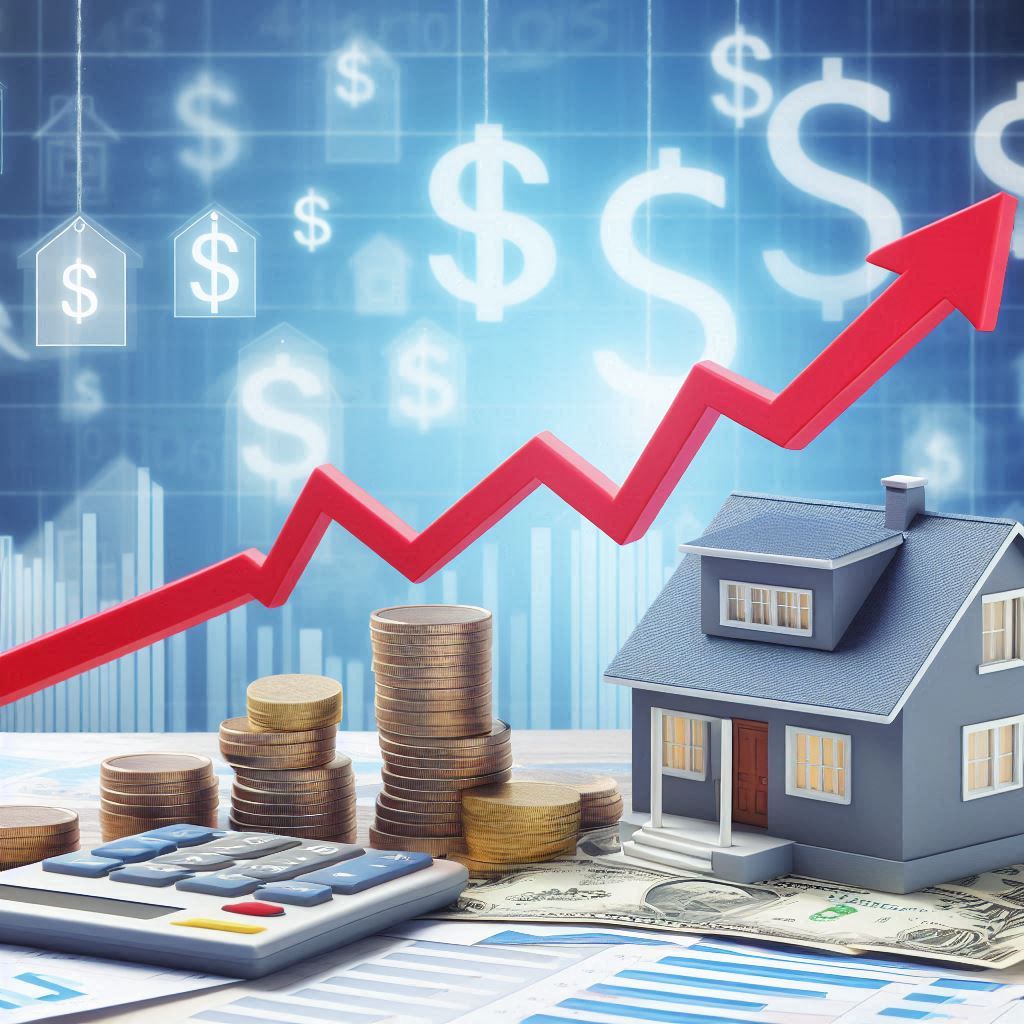
How Rising Mortgage Rates Affect Homebuyers
Introduction
Mortgage rates play a pivotal role in the housing market, directly impacting homebuyers’ decisions and financial capabilities. When mortgage rates rise, the effects ripple through the economy, influencing everything from home affordability to buyer behavior. This article delves into the ways in which rising mortgage rates affect homebuyers, explores the broader implications for the housing market, and offers strategies for navigating these challenges.
The Basics of Mortgage Rates
Before diving into the impact of rising mortgage rates, it’s important to understand what mortgage rates are and how they are determined. A mortgage rate is the interest rate charged on a mortgage loan, which can be fixed or variable. Fixed rates remain constant over the loan term, while variable rates can fluctuate based on market conditions.
Several factors influence mortgage rates, including:
Economic Indicators: Key indicators such as GDP growth, employment rates, and inflation can drive mortgage rate changes.
Federal Reserve Policies: Decisions made by the Federal Reserve, particularly changes to the federal funds rate, have a significant impact on mortgage rates.
Bond Market: Mortgage rates are closely tied to the yields on long-term government bonds. When bond yields rise, mortgage rates often follow suit.
Impact on Monthly Payments
One of the most immediate effects of rising mortgage rates is the increase in monthly mortgage payments. For homebuyers, this translates to higher costs over the life of the loan. To illustrate:
If a homebuyer takes out a $300,000 mortgage at a 3% interest rate, their monthly payment (excluding taxes and insurance) would be approximately $1,264.
If the mortgage rate rises to 4%, the monthly payment increases to roughly $1,432.
This seemingly small increase in the interest rate results in an additional $168 per month, or over $2,000 per year. Over the course of a 30-year mortgage, this can add up to tens of thousands of dollars in extra payments.
Affordability Challenges
Rising mortgage rates also affect the affordability of homes. As monthly payments increase, the amount that buyers can afford to borrow decreases. This means that buyers may need to adjust their expectations, potentially settling for smaller homes, less desirable locations, or lower-priced properties.
For example, a buyer who could afford a $400,000 home at a 3% interest rate might only be able to afford a $350,000 home if rates rise to 4%. This can limit options and make it more challenging to find a suitable home within budget.
Impact on Housing Demand
Higher mortgage rates can dampen housing demand, as potential buyers may choose to delay purchasing or opt out of the market altogether. This reduction in demand can have several consequences:
Slower Market Activity: With fewer buyers in the market, homes may stay on the market longer, leading to slower sales.
Price Adjustments: Sellers may need to lower their asking prices to attract buyers, which can lead to a cooling of the housing market.
The impact on housing demand can vary by region and market segment. In high-demand areas with limited housing supply, the effects may be less pronounced. However, in markets with ample supply, the impact can be more significant.
Refinancing Implications
Rising mortgage rates also affect homeowners looking to refinance their existing mortgages. When rates are low, refinancing can be an attractive option to lower monthly payments or tap into home equity. However, as rates rise, the benefits of refinancing diminish.
For homeowners with variable-rate mortgages, rising rates can lead to higher payments, prompting some to consider refinancing to a fixed-rate mortgage. However, the higher fixed rates can make this decision more complex.
Broader Economic Implications
The effects of rising mortgage rates extend beyond individual homebuyers and homeowners. They can have broader economic implications, including:
Consumer Spending: Higher mortgage payments can reduce disposable income, leading to decreased consumer spending. This can impact various sectors of the economy.
Construction Activity: Slower housing demand can lead to reduced construction activity, affecting jobs and economic growth in related industries.
Financial Markets: Changes in mortgage rates can influence investor behavior and financial market dynamics, as higher rates can lead to shifts in investment strategies.
Strategies for Homebuyers
Despite the challenges posed by rising mortgage rates, there are strategies that homebuyers can employ to navigate the changing landscape:
Lock in Rates: When mortgage rates are on the rise, locking in a rate can protect buyers from further increases. Many lenders offer rate lock options, which can provide peace of mind during the homebuying process.
Adjust Expectations: Homebuyers may need to adjust their expectations and be flexible in their search. This could mean considering smaller homes, different neighborhoods, or alternative financing options.
Increase Down Payments: A larger down payment can help offset the impact of higher mortgage rates by reducing the loan amount and monthly payments. Saving for a larger down payment can be a strategic move in a rising rate environment.
Explore Loan Options: Different loan products offer various benefits. For example, adjustable-rate mortgages (ARMs) may have lower initial rates, but come with the risk of future increases. Fixed-rate mortgages provide stability, which can be advantageous in a rising rate environment.
Improve Credit Scores: Higher credit scores can lead to better mortgage rates. Homebuyers should focus on improving their credit profiles to secure the best possible rates.
Conclusion
Rising mortgage rates present both challenges and opportunities for homebuyers. While higher rates can lead to increased monthly payments and affordability issues, they also encourage buyers to be more strategic in their approach. By understanding the factors that influence mortgage rates and employing effective strategies, homebuyers can navigate the complexities of the housing market and make informed decisions.
Staying informed about economic trends, Federal Reserve policies, and market conditions is crucial for making the best financial choices. As the housing market continues to evolve, adaptability and knowledge will be key for those looking to buy or refinance homes in a rising rate environment.